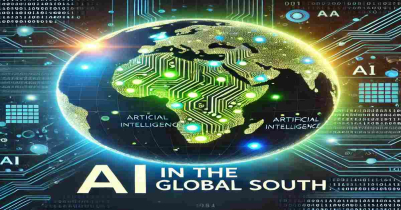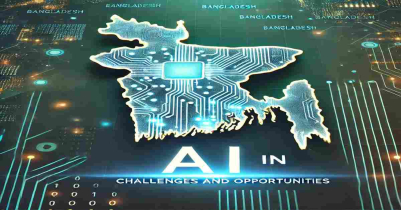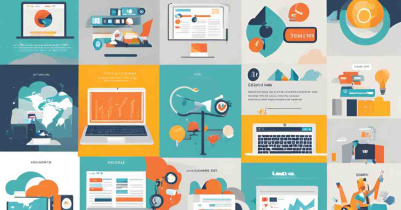Hasanat Kamal
Update: 17:23, 19 December 2024
How Afraid Should We Be of Artificial Intelligence?

AI: Fear or Future? Navigating the Unknown
Artificial Intelligence (AI) is rapidly transforming the way we live, work, and interact with the world around us. From self-driving cars to advanced medical diagnostics, AI promises a future brimming with possibilities. Yet, amid the excitement, concerns about the risks and ethical implications of AI have sparked widespread debate. How much of this fear is justified, and how can society navigate the complexities of an AI-driven world?
Understanding Artificial Intelligence and Its Potential
AI refers to systems and machines capable of performing tasks that typically require human intelligence, such as learning, reasoning, problem-solving, and decision-making. Over the past decade, AI has progressed from narrow applications, like language translation and recommendation systems, to broader implementations, such as generative AI and autonomous robotics. These advancements have raised expectations for a future where AI could enhance productivity, solve complex global challenges, and improve quality of life.
The Positive Impact of AI
-
Healthcare: AI is revolutionizing healthcare by enabling early disease detection, personalized treatment plans, and efficient drug discovery. AI-powered diagnostics are helping doctors save lives with greater precision.
-
Education: AI-powered tools provide personalized learning experiences, bridging gaps in education for students worldwide.
-
Sustainability: AI-driven innovations in agriculture, energy, and resource management support sustainability efforts and combat climate change.
-
Economic Growth: AI can boost productivity, drive innovation, and create new markets, contributing to economic development.
While these advancements are promising, they come with challenges that cannot be ignored.
Fears Surrounding Artificial Intelligence
Despite its potential, AI has also been a source of anxiety for many. These fears stem from ethical, societal, and existential concerns that highlight the need for cautious implementation.
1. Job Displacement and Economic Inequality
One of the most pressing concerns about AI is its potential to displace jobs. Automation is replacing routine and repetitive tasks across industries, threatening the livelihoods of millions. Workers in manufacturing, transportation, and even white-collar professions are at risk of redundancy as AI systems outperform humans in efficiency and cost-effectiveness.
Mitigation Strategy: Governments and industries must invest in reskilling and upskilling programs to help workers transition to roles that require uniquely human skills, such as creativity, emotional intelligence, and complex problem-solving.
2. Ethical and Bias Issues
AI systems are only as good as the data they are trained on. Biased or incomplete datasets can lead to discriminatory outcomes, exacerbating societal inequalities. For instance, AI-powered recruitment systems may unintentionally favor certain demographics, perpetuating biases in hiring.
Mitigation Strategy: Ethical AI development requires transparency, diverse datasets, and ongoing audits to eliminate bias and ensure fairness.
3. Loss of Privacy
AI systems often rely on vast amounts of personal data to function effectively. This raises concerns about surveillance, data misuse, and the erosion of privacy. In extreme cases, authoritarian regimes could use AI for mass surveillance and control.
Mitigation Strategy: Governments must enforce robust data protection laws, ensuring transparency in how AI systems collect, store, and use personal data.
4. Weaponization of AI
AI's ability to analyze data, make decisions, and adapt makes it a powerful tool in warfare. Autonomous weapons, capable of targeting and eliminating threats without human intervention, could lead to ethical dilemmas and unintended escalations in conflicts.
Mitigation Strategy: International treaties and regulations are necessary to prevent the development and deployment of autonomous weapons.
5. Existential Risks
A significant fear is that advanced AI systems could surpass human intelligence (a concept known as Artificial General Intelligence or AGI) and act against human interests. Popularized by science fiction and echoed by leading thinkers like Elon Musk and Stephen Hawking, this scenario envisions AI systems developing goals misaligned with humanity's well-being.
Mitigation Strategy: Ensuring AI alignment with human values and imposing strict ethical guidelines during the development of AGI are crucial steps to mitigate this risk.
Should We Be Afraid of AI?
Fear of AI often stems from misunderstanding and misinformation. While the risks associated with AI are real, they can be mitigated with responsible development, robust regulations, and ethical considerations. Here are some key perspectives to balance the fear:
AI as a Tool, Not a Threat
AI is a tool designed to augment human capabilities, not replace them. When used responsibly, it can address some of humanity's greatest challenges, from climate change to global health crises.
Collaboration Over Competition
AI should not be seen as a competitor to humans but as a collaborator. By leveraging AI for tasks that require precision and speed, humans can focus on creative and strategic roles.
The Importance of Governance
Proper governance and oversight are essential to ensure AI systems operate within ethical boundaries. Policymakers, technologists, and ethicists must work together to create guidelines that protect public interest while fostering innovation.
The Path Forward: Managing AI Risks and Maximizing Benefits
To address fears surrounding AI and harness its full potential, a multi-stakeholder approach is needed. Here are actionable steps for governments, industries, and society:
1. Invest in Education and Awareness
- Equip people with the knowledge to understand AI's capabilities and limitations. Public awareness campaigns can demystify AI and reduce fear.
2. Develop Global AI Standards
- International collaboration is crucial for establishing standards that govern AI development and deployment across borders.
3. Promote Ethical AI Research
- Encourage research focused on creating AI systems that are fair, transparent, and accountable.
4. Foster Innovation in Safe Environments
- Create regulatory sandboxes where AI technologies can be tested in controlled environments before large-scale deployment.
5. Encourage Collaboration Between Humans and AI
- Design AI systems that work alongside humans, enhancing productivity and creativity rather than replacing human input.
Conclusion: A Balanced Perspective
AI is neither a panacea nor an existential threat—it is a powerful tool with the potential to transform society. Fear of AI is natural, given its disruptive nature, but it should not overshadow the opportunities it offers. By addressing ethical, societal, and existential concerns through thoughtful regulation, education, and collaboration, we can ensure
AI becomes a force for good in the world
Rather than fearing AI, we should focus on understanding it, managing its risks, and leveraging its capabilities to build a future that benefits all of humanity.
Read More:
- 32 megapixel camera new phone Tecno Spark 10 Pro
- Google Bard now in Bangladesh
- Samsung Galaxy A54 5G: A perfect price fit!
- Tottering from Twitter to Threads
- Elon Musk`s SpaceX hires 14-year-old Bangladeshi-American Kairan
- Refreshing only increases the speed of the computer?
- Twitter lost a huge number of subscribers
- boAt products now officially available in Bangladesh
- The Godfather of AI quits Google; warns of impending danger
- 4 websites to track Cyclone Mocha in real-time






























